The Ninth Circle at Cannes Classics 2020
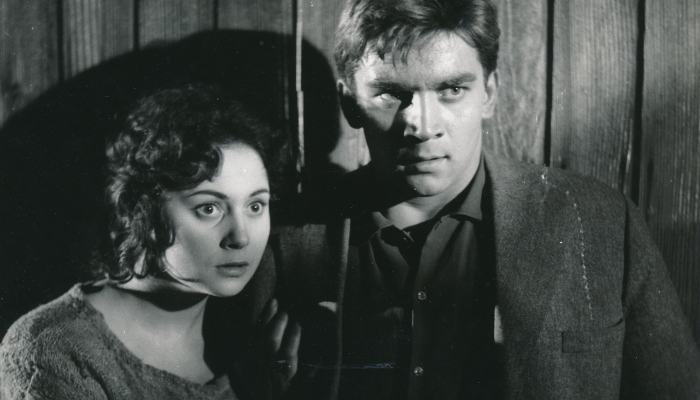
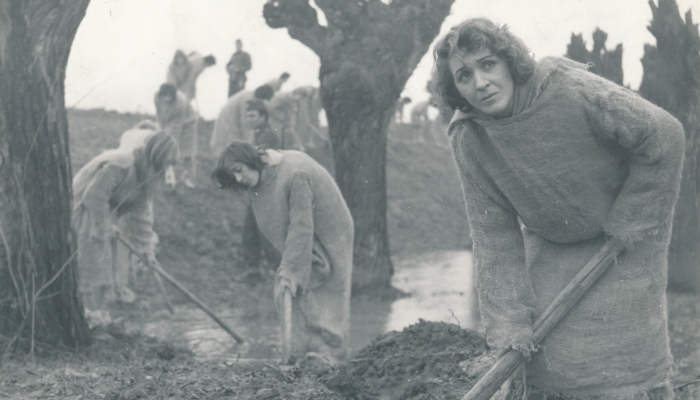
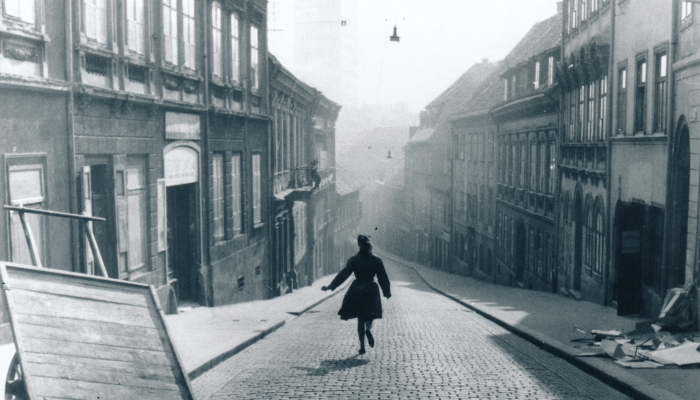
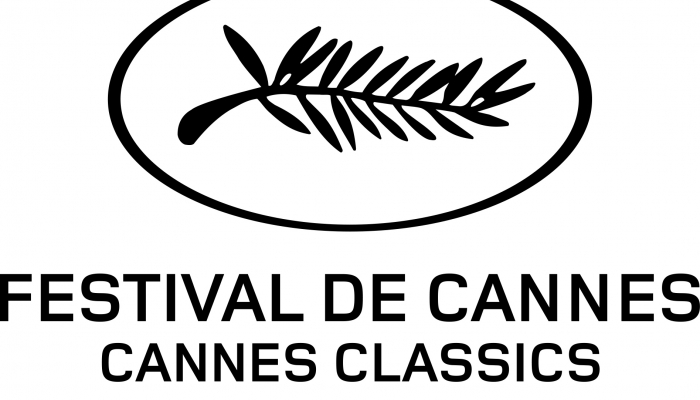
The 1960 fiction feature, The Ninth Circle, by Slovenian director France Štiglic, a Jadran Film studio production, to screen in the Cannes Film Festival programme Cannes Classics. The programme showcases newly restored film classics.
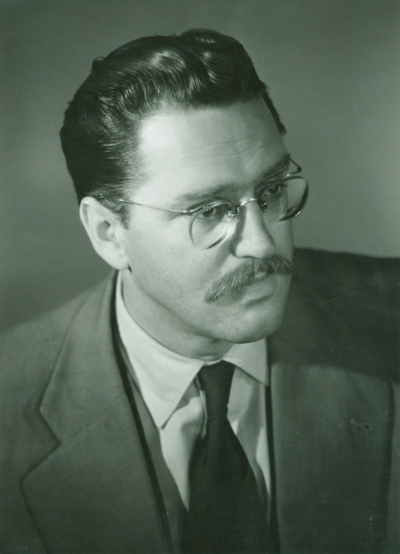
“We are proud that one of our film classics has been selected for the Cannes Classics programme. The Cannes programming has selected France Štiglic’s film primarily for its quality, but this also highlights the quality of the restoration process and the fact that there is a vast task still before us of restoring other heritage works, many of which are in very poor condition,” said on the occasion Croatian Audiovisual Centre CEO Chris Marcich.
Slovenian director France Štiglic’s The Ninth Circle, which premiered at the Cannes Film Festival in 1960, has been digitally restored at Zagreb studios Ater and Klik Film, for the Croatian State Archives, with the support of the Croatian Audiovisual Centre.
“After detailed technical examination of all the existing film strip material and the trial process of scanning individual source materials, it was decided that the original 1960 negative would be used for the restoration, together with a combined (image and sound) duplicate positive created by photochemical restauration in 2001. These source materials were then scanned in 2K resolution, followed by digitally removing mechanical and chemical damage to the sound and image using specialized software tools. It is an extremely sensitive and delicate process comparable to painting restoration – the damages are removed one square inch at a time, paying great attention not to harm the original texture of the image.
As the final goal of restoration is to give today’s audience a feel of the film as it was when it was created, and never to ‘improve’ or modernize the image and sound, various minute imperfections caused by limitations of laboratory technique at the time have been preserved in the digitally restored version as well. The biggest challenge of this project was precisely in the attempt to bring to life all the characteristics of a work of art created 60 years ago – by applying modern technologies, while also respecting the ethical postulates of film restoration,” explains Vjeran Pavlinić, the digital restauration supervisor from the Croatian Cinematheque of the Croatian State Archives.
“The Croatian Film Archives (Croatian Cinematheque), a division of the Croatian State Archives, with the support of the Ministry of Culture of the Republic of Croatia and the Croatian Audiovisual Centre, conducts the process of preserving the national film heritage with the purpose of long-term conservation of cinematic works. The digitalization and restoration of The Ninth Circle is a continuation of these activities aimed at making the Croatian film classics available to today’s audience and bringing the focus of the professional community back to certain titles and authors in order to be able to see them in a new light.
The inclusion of the restored Croatian film in the Cannes Classics programme is a recognition from one of the most prestigious film festivals for the efforts of the Croatian State Archives’ Croatian Cinematheque in preserving the audiovisual heritage and an incentive to continue our activities in this direction. We believe that the inclusion of The Ninth Circle in the Cannes programme is important for the preservation of world cinematic heritage on the whole, because it enhances the visibility of numerous treasures, stored away in film archives and cinematheques, that might remain hidden if it was not for programmes and initiatives such as Cannes Classics, which is a way of drawing attention to the heritage of cinema on a prominent global stage. We hope that this instance will pave the way for a ‘new life’ of other Croatian heritage films as well,” added Dinko Majcen, head of the project of restoration and Head of the Croatian Film Archives of the Croatian State Archives.
War-time drama The Ninth Circle was directed by France Štiglic, while Zora Dirnbach wrote the screenplay. Dušica Žegarac, Boris Dvornik, Beba Lončar, Dragan Milivojević, Ervina Dragman, Branko Tatić and many others comprise the film cast. Ivan Marinček was the cinematographer, Lida Braniš edited the film, while Branimir Sakač composed the music. The film was a Jadran Film production.
The Ninth Circle is set in Zagreb during WWII, as the Ustasha government’s persecution of Jews intensifies. Young Jewish girl Ruth barely manages to escape being sent to a camp, but her parents and brother are taken away. Friends of the family give her refuge and arrange for her to marry their son in order to protect her from persecution. Initially seeing the arranged marriage as a limitation of his freedoms, the newlywed husband rebels, but soon realizes that the girl who has been his friend since childhood has no other alternatives for salvation. It does not take long for the two young people to actually fall in love with each other, however, a tiny slipup causes Ruth to be sent to the ‘Ninth Circle’, the infamous concentration camp for young women…
In addition to being nominated for the 1960 Cannes Film Festival Palme d'Or, the film was also nominated for the Academy Award for Best Foreign Language Film the following year. It triumphed at the 1960 Pula Film Festival, winning the Grand Golden Arena for Best Film, while the Golden Arena for Best Actress went to Zora Dirnbach – the first woman in history to win this award. Branko Tadić also won the Golden Arena for Best Supporting Actor, Ivan Mariček for Best Cinematography and Branimir Sakač for Best Music. The film won the audience award on the occasion as well.
This year’s 17th edition of Cannes Classics will feature 25 fiction and seven documentary feature titles. Due to the postponement of the Cannes Film Festival, this year the Cannes Classics programme will partly or completely be held as part of the Lumière Festival, held in Lyon 10th – 18th October, and during the Rencontres Cinématographiques de Cannes festival, held 23rd – 26th November.
The Cannes Classics programme will also include Slobodan Šijan’s Who’s Singin’ Over There? (1980). It will also feature the restored version of Hong Kong director Wong Kar-wai’s In the Mood for Love, to mark the 20th anniversary of its Cannes premiere. The programme will also commemorate the 60th anniversary of French New Wave pioneer Jean-Luc Godard’s the masterpiece Breathless (À bout de soufflé), as well as Michelangelo Antonioni’s The Adventure (L'Avventura), which won the Jury Prize in Cannes in 1960. In addition, this year marks the 100th birthday of Italian director Federico Fellini, awarded the Palme d'Or in Cannes for La Dolce Vita in 1960. To commemorate the occasion, Cannes Classics will screen restored copies of his films The Road (La Strada, 1956) and Variety Lights (Luci del varietà, 1950), as well as a documentary about his fascination with metaphysics, Fellini of the Spirits, directed by Anselma Dell’Olio.
Find out more about this year's edition of Cannes Classics on the following link.
Cannes Classic, part of the official Cannes Film Festival programming since 2004, is conceived as a review of restored film classics from around the world. Each year, the programme brings to life world cinematic heritage through screenings of classics, making-of documentaries, special events and retrospectives.
Cover photographs: scenes from The Ninth Circle; Cannes Classics 2020 visuals
(*photographs from The Ninth Circle: HR-HDA-1392 The Collection of Film Photography of Croatian film, Croatian State Archives – Croatian Film Archives)
Top left caption photograph: France Štiglic
(*source: Slovene Film Archives)
